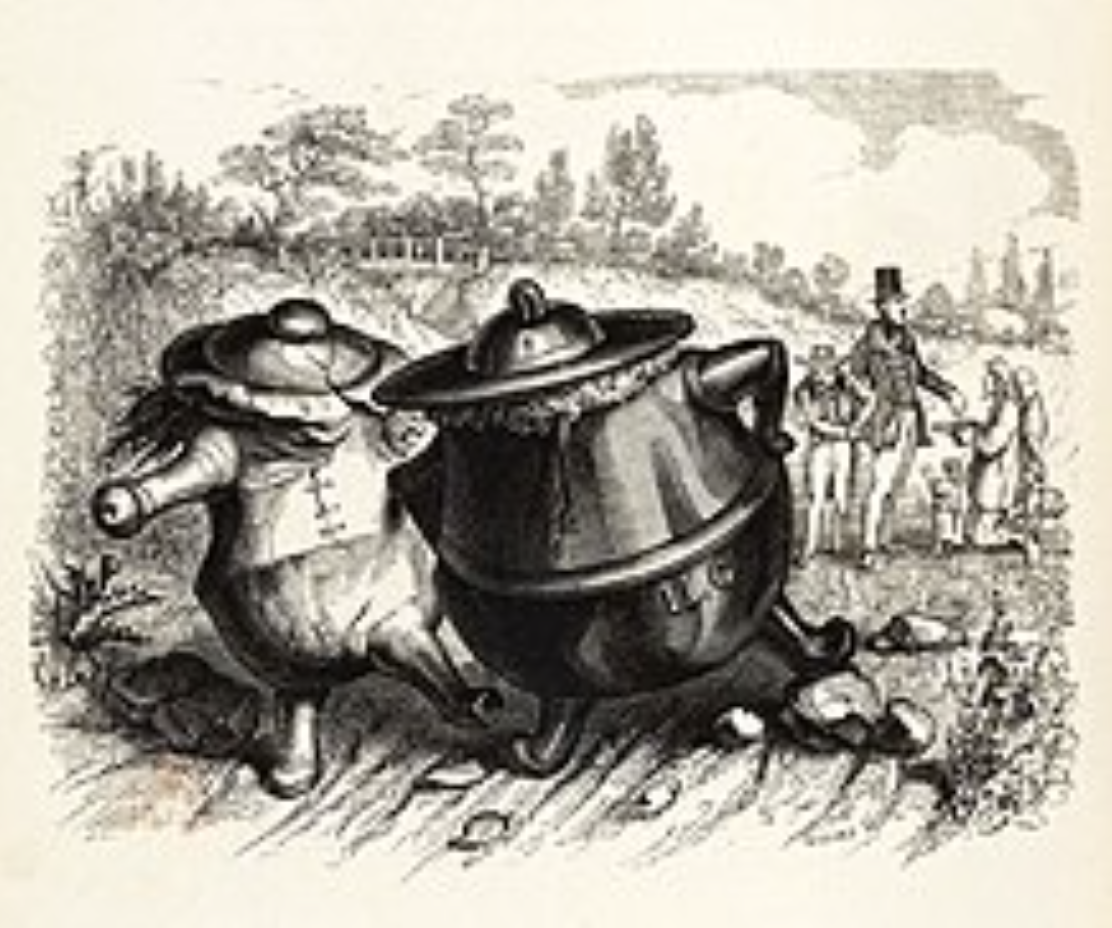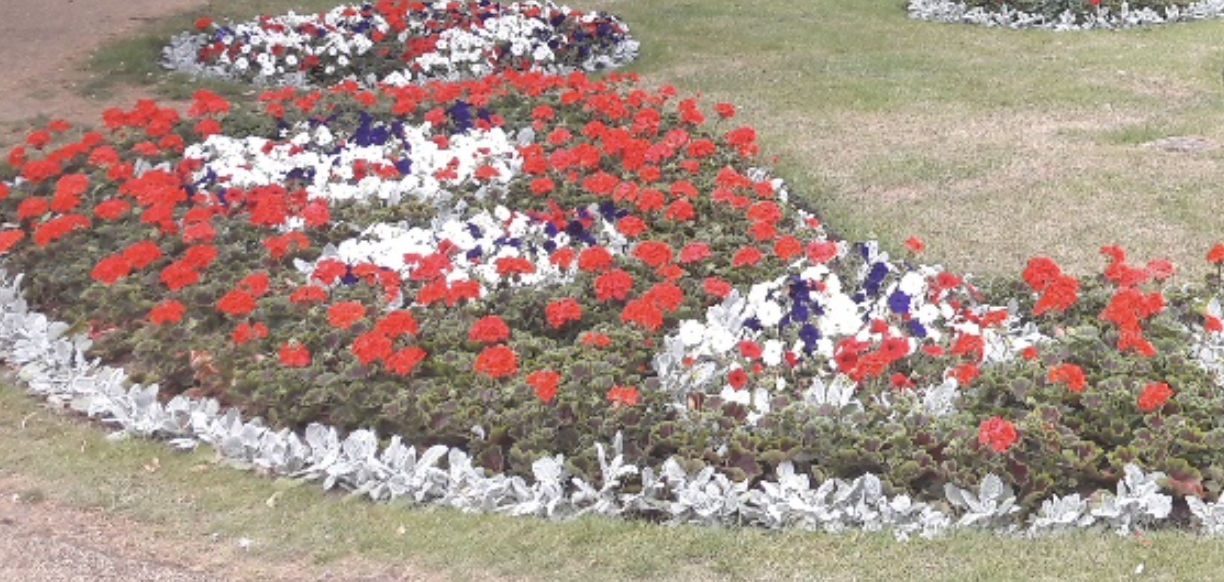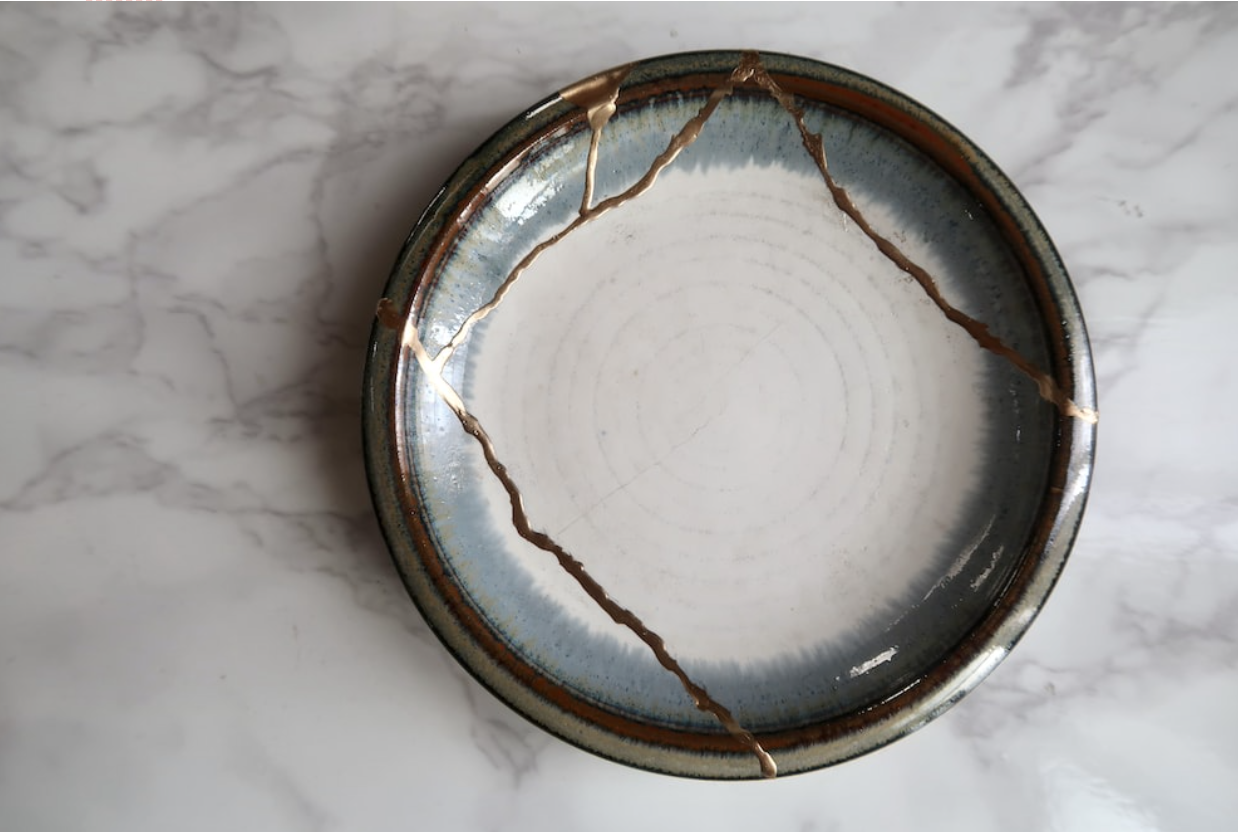by Carol Dixon, music by Rev. Sheila Hamil
When I was at the Girl’s Grammar School in the early ‘60s we read the fables of La Fontaine and one that stuck in my mind was a story about an iron pot and a clay pot called ‘Le pot de fer et le pot de terre’.
One day an iron pot invited a clay pot to go for a walk with him. The clay pot was hesitant as he was afraid he might break if he went outside but the iron pot assured him that he would stand between him and any dangers so, with much persuasion, the clay pot reluctantly agreed and they set off side by side clomping along. The road surface was rather rough so the iron pot stayed close to the clay pot to protect him but before they had gone very far they bumped into each other on the uneven ground and sure enough, the clay pot shattered.
I’m not sure exactly what the moral of the tale was (or even if there was one) but the story has stayed with me for about 60 years!

Image from Wikipedia
A much more uplifting folk tale from China goes like this. (Some versions include a perfect pot and a cracked pot)
Once there was an elderly lady who was so poor all she had was a cracked water jar. Each day she went to the river to collect water and by the time she got home the pot was half empty.
‘I feel really bad’ said the cracked pot sadly one day. ‘You have to keep going to the river for water because so much is lost through the crack.’
‘Don’t be sad’ said the woman. ‘Just watch the roadside and you will see something amazing’. Next time they went to fetch water the cracked pot looked but couldn’t see anything.
As they reached the river he said to her ‘I didn’t see anything – only the dry dusty road.’
‘Don’t worry,’ replied the woman. ‘Just keep looking’.
On the return journey the pot was delighted to see the verge was full of beautiful flowers. When they got home the pot asked the woman where they had come from when the other side was bare. The old woman smiled.
‘On the way back from the river water dribbles out of the crack in your side and so the flowers bloom.’ she said. ‘So you see even cracked pots have their uses.’

Photo by Carol Dixon
In many ways the story reminds me of Paul’s letter to Philemon where (in verse 11) Paul writes that one of Philemon’s slaves, who was useless to him since he ran away now lives up to his name, Onesimus (meaning useful) and been very helpful to Paul during his captivity. We don’t know why Onesimus ran away from his Christian master but somehow he ended up with Paul in prison and became a Christian. In our lives too there are times when disaster strikes and we feel we are ‘neither use to man or beast’ as my granny used to say. But God always has a use for us, whatever state we are in and as we invite Jesus into our lives (maybe for the umpteenth time) we find ourselves not only blest but become a blessing to others, perhaps in a very different way from what we had imagined.
Recently I have been rereading Margaret Silf’s beautiful book ‘Landscapes of prayer’ and in the section entitled ‘Garden’ she tells a lovely story about what she calls ‘The smallest ever walled garden’.
“Once there was a kindly noble lady who lived in a magnificent mansion and she often used to entertain guests. One day as she and a friend were taking tea together the fine China teapot slipped out of her hand and fell to the ground and the spout and handle broke off. Most people would have thrown it out but she loved that pot so she gave it a new form of life instead. She planted delicate flowers in it and it became its own ‘sacred enclosure’ reminding her and her guests that in our brokenness we can be even more lovingly tended and cherished than when we were whole.”.
Kintsugi bowl

Photo by Riho Kitagawa on Unsplash
The Japanese have a wonderful way with broken pots called Kintsugi. Instead of discarding the object they put it together again and cover the cracks with gold paint turning what was disfigured into something beautiful. Paul’s second letter to the Corinthians chapter 4 says:
7 But this beautiful treasure is contained in us—cracked pots made of earth and clay—so that the transcendent character of this power will be clearly seen as coming from God and not from us. 8 We are cracked and chipped from our afflictions on all sides, but we are not crushed by them. We are bewildered at times, but we do not give in to despair. 9 We are persecuted, but we have not been abandoned. We have been knocked down, but we are not destroyed. 10 We always carry around in our bodies the reality of the brutal death and suffering of Jesus. As a result, the glorious resurrection life of Jesus may be seen in our human lives. [2 Cor 4 v7-10, The Voice translation]
A prayer:
Lord, we are weak vessels,
crude containers for your glory.
Yet we praise you
because your power
is radiant in weakness.
Lord, we are not worthy,
or great, by the world’s standards.
Yet we praise you
because your love
is revealed in unworthiness.
Thank you for choosing
weak people,
unworthy people.
Thank you for giving us
something to celebrate –
for filling us to the brim
with the new, invigorating wine
of your kingdom.
Lord of new beginnings
we praise you
because you our yourself out
for us,
you share yourself
with us,
and give us the intoxicating promise
that we may become
new wine for the world.
© Carol Dixon
One of my favourite songs of how that ‘intoxicating promise’ is fulfilled is ‘Water into Wine’ by Sheila Hamil. You can find it on YouTube – Sheila Hamil Lockdown Legacy along with many of her other lovely songs.
I hope you enjoy it as much as I do.
 Preparing for the Garden Walk of Holy Week
Preparing for the Garden Walk of Holy Week
In the last few days of his life, Jesus moved from garden to garden from suffering to resurrection.
Join Christine Sine for a Lent retreat that reflects on this journey and prepares for the challenging week that follows Palm Sunday.

